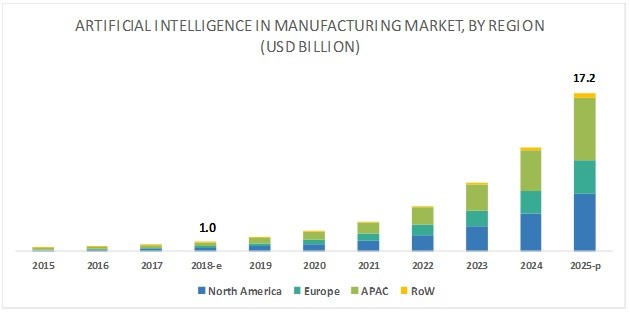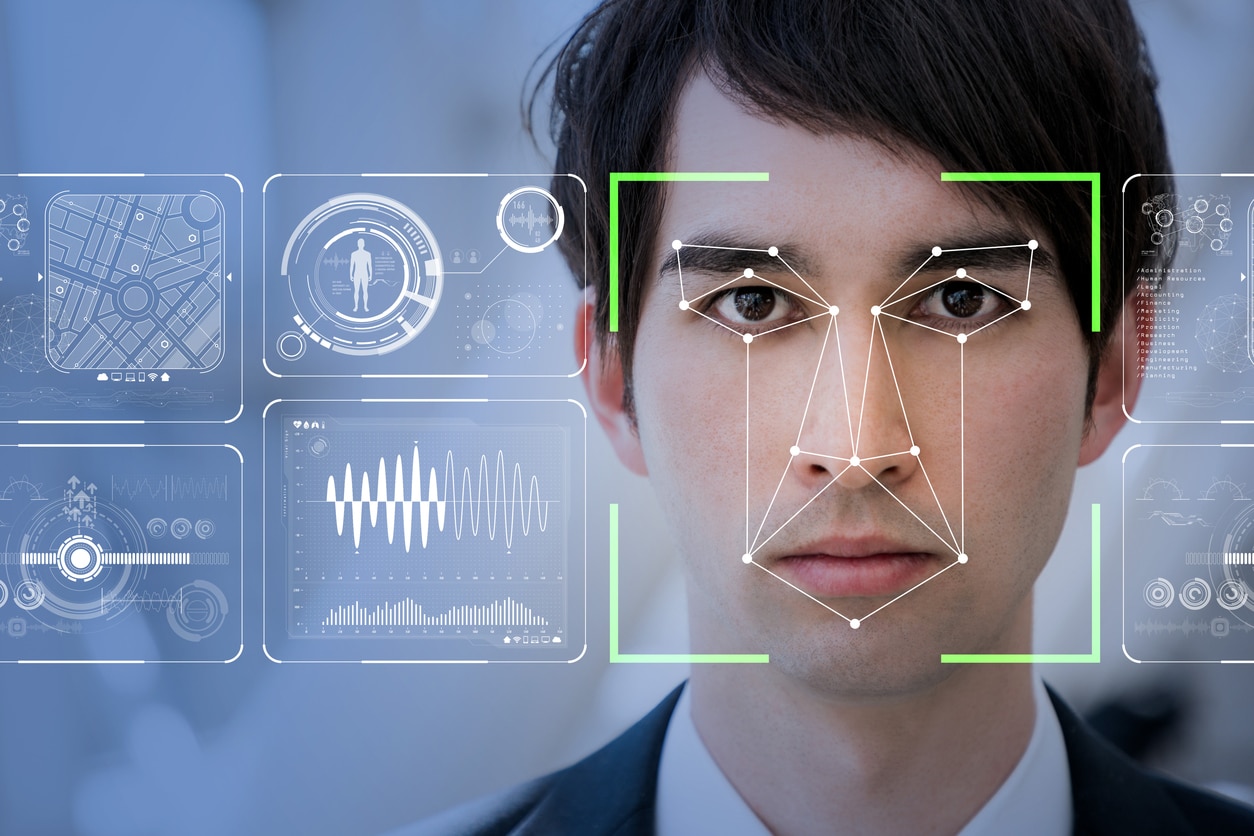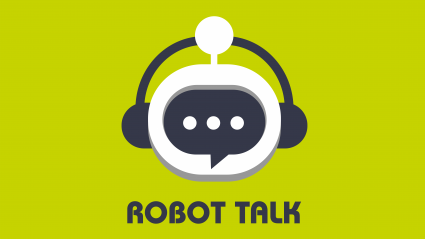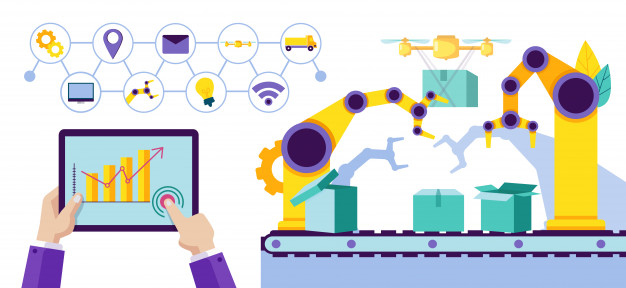Tactile sensing and logical reasoning strategies aid a robot’s ability to recognize and classify objects
At least 60 million strokes
Four-legged, dog-like robot ‘sniffs’ hazardous gases in inaccessible environments
Four-legged, dog-like robot ‘sniffs’ hazardous gases in inaccessible environments
Researchers create skin-inspired sensory robots to provide medical treatment
An open-source generalist model for robot object manipulation
Solving the logistics labor puzzle: Choreographing a Tango of Robots and Human Labor in Warehouse Operations
The Goodies Keep Coming
ChatGPT Offers More Features for Free Users
We live in a world where much of the AI we use seems downright magical — and very often, absolutely free.
ChatGPT-maker OpenAI has upped-the-ante on that trend, rolling-out a spate of even more new features that can be used for a song.
For writers, that means free access to ‘custom-GPTs’ — or custom versions of ChatGPT designed for specific writing tasks like stylized auto-writing, editing and proofing, SEO-optimization and the like.

Writers will also be able to take advantage of new ChatGPT tools for data analytics and image manipulation.
And they’ll also have access to Memory, a powerful new feature that is especially handy for writers looking to train ChatGPT to closely mimic their personal writing style — or remember all of their personal preferences as users of ChatGPT.
In other news and analysis on AI writing:
*AI for the Camera Shy: Instantly Create an Avatar Spokesperson: AI video toolmaker Captions has released a new tool that enables video-makers to create instant avatars to serve as spokespeople in short clips.
Dubbed ‘AI Creator,’ the tool also offers users the ability to customize production elements of their videos, such as camera angles, lighting, clothing for the spokesperson and a background.
Observes Gaurav Misra, CEO, Captions: “Not everyone who wants to create content also wants to be on camera. “Since our mission has always been to empower anyone to effectively communicate their stories through video, launching AI Creator feels like the natural next step.
“Now, not only can users record and edit their talking videos with Captions. (They can now) generate a talking video entirely on Captions as well.”
*Need Workshops, Seminars, Polls and More?: Just Add Text and Stir: Mentimeter has released a new AI tool that auto-creates workshops, quizzes, seminars, polls and similar content from a text prompt.
The tool works by analyzing an input prompt and crafting a ‘purpose-built presentation — following Mentimeter’s knowledge base of best practices for facilitating meetings and classes.’
Observes Niklas Ingvar, co-founder, Mentimeter: “Our customers highlight that they often lack sufficient time to level-up traditional one-way presentations into sessions that encourage active participation.
“This new capability not only saves time, but also assists users to focus on delivering impactful content and engaging their audience effectively.”
*Extra! Extra!: AI Coming to 100+ More Newsrooms: Add another 100+ news publishers to the list of news outlets that are going all in on AI.
ChatGPT-maker OpenAI has announced that it’s working with WAN-IFRA — the World Association of News Publishers — to further promulgate AI in news.
Observes Tom Ruben, a media exec at OpenAI: “This program is designed to turbo-charge the capabilities of 128 newsrooms across Europe, Asia and Latin America.”
*Canva Looking to Eat Microsoft’s and Google’s Lunch: Consumers now have an alternative to Microsoft Office and Google Workspace.
Dubbed Canva Enterprise, the productivity platform is shot-through with AI and designed to simplify work.
Observes Melanie Perkins, CEO, Canva: “In this next chapter, we’ll take the three fragmented ecosystems that organizations face—the design needs of each professional industry, the AI creation and editing tools and all the workflow products—bringing it all into one single platform.”
*James Bond, Meet AI: Spy Reports Now Shaken, Not Stirred — and Algorithmically Generated: Impressed by early gains in their use of AI to find patterns in spy-collected data, U.S. intelligence agencies are “scrambling to embrace the AI revolution,” according to writer Frank Bajak.
One example, according to Bajak: “Thousands of analysts across the 18 U.S. intelligence agencies now use a CIA-developed GenAI called Osiris.
“It runs on unclassified and publicly or commercially available data — what’s known as open-source. It writes annotated summaries and its chatbot function lets analysts go deeper with queries.”
*Flesh-Bags One, AI-Automated News Site, Zero: In a victory for mere humans, an AI news aggregator that apparently regurgitated stories from legitimate journalists — after quick, AI re-writes — has gone dormant.
The reason: Lack of oversight by human beings resulted in error-ridden content that in at least one case, severely damaged the reputation of a respected Irish talk-show host.
Observes lead writer Kashmir Hill: “Even though AI-generated stories are often poorly constructed, they can still outrank their source material on search engines and social platforms, which often use AI to help position content.
“The artificially elevated stories can then divert advertising spending — which is increasingly assigned by automated auctions without human oversight.”
*AI Inside: Google’s Chromebook Gets a Makeover: Fans of Chromebook and AI may cotton to a slew of AI features Google is integrating into the latest Chromebook.
Observes writer Nathan Ingraham: “Chromebook Plus models are getting a host of features that Google first teased last year as well as some new ones we haven’t heard about before.”
One of the handiest features for scribes is an AI-automated writer.
Observes Ingraham: “The ‘help me write’ feature Google soft-launched earlier this year is now available on all Chromebook Plus laptops.
“This should work across any text entry field you find on a Web site — whether that’s a Google product like Gmail or a site like Facebook.
“You can use it to get a prompt, or have it analyze what you’ve already written to make it more formal, or more funny.
“Basically it’s a generative text tool that you can use across the Web.”
*AI-Powered Legal Tools: Now All in One Place: Lawyers looking for the lowdown on the full spectrum of AI tools available to them now have a directory to call their own.
Offered by Artificial Lawyer and Theorem, the directory enables buyers to evaluate “a wide range of leading solutions, leverage an RFP Builder to help you match the best legal tech products with your projects, and you can take part in Theorem’s Legal Tech Stack Community to learn more about what tools the market is using.
“The goal is to improve the procurement process for finding the right legal tech tools for you.”
*AI Big Picture: Bringing New Meaning To, ‘A License to Print Money:’ AI Company Joins the $3 Trillion Club: You know you’re doing well as an AI company when you become one of only three businesses on the planet valued at $3 trillion.
AI chipmaker Nvidia did just that earlier this month — a company in the right place at the right time that arguably manufacturers the world’s most coveted and extremely powerful chips for AI applications.
For the record, Nvidia is the number two most valuable company on Earth — just behind Microsoft and a step ahead of Apple.

Share a Link: Please consider sharing a link to https://RobotWritersAI.com from your blog, social media post, publication or emails. More links leading to RobotWritersAI.com helps everyone interested in AI-generated writing.
–Joe Dysart is editor of RobotWritersAI.com and a tech journalist with 20+ years experience. His work has appeared in 150+ publications, including The New York Times and the Financial Times of London.
The post The Goodies Keep Coming appeared first on Robot Writers AI.
How AI Technology Is Redefining the Manufacturing Industry?
AI Technology Is Redefining the Manufacturing Sector
Best Ways AI Is Improving Manufacturing In 2024
Artificial Intelligence technology has the power to automate and revolutionizing the entire manufacturing ecosystem. From automating routine tasks, prototype designs and development, robot deployment and maintenance, and supply chain automation to facility remote monitoring, everything can be automated seamlessly by implementing AI in manufacturing.
To be competitive with other manufacturing companies, organizations need to accelerate with AI transformation and speed up smart manufacturing operations. While it may sound intimidating, Artificial Intelligence in manufacturing is also exciting, and it doesn’t go away.
The below figure depicts the market growth of AI technology in manufacturing industry for a period of 2015 to 2025.

Source: Markets and Markets
Top AI Applications In Manufacturing Industry
How AI transforms manufacturing?
Let’s continue reading to know where AI is being applied in the manufacturing sector and how AI works in manufacturing. All the below AI use cases in manufacturing will ensure the best business outcomes to the companies. Let’s take a look at How AI technology redefining the manufacturing industry?
1.AI Virtual Assistants Bots
It is one of the best use cases of AI in manufacturing industry. AI virtual assistants better communicates with workforce, solve queries, perform assigned tasks, and offer personalized recommendations, etc. Using Natural Language Processing capabilities, AI manufacturing applications deliver human-like responses and executes every task faster, efficient with 100% accuracy.
2. Predictive Maintenance and Analytics
The best answer is predictive maintenance. Yes. Adoption of AI technology in manufacturing industry will assist manufacturers in monitor and analyze the device performance and predict the need of overhaul or maintenance services. Such automated process will prevent the equipment breakdowns and ensure efficient productivity. It is one of the top benefits of AI in manufacturing industry.
Using Artificial intelligence in manufacturing industry, Manufacturers can tracks operational efficacy and derives accurate predictions into maintenance.
Hence, Artificial Intelligence solutions processes device data, learns from experiences, identifies patterns, and finds out the possibilities of damages before the product hauls. This kind of AI applications in manufacturing industry will improve productivity and ensures lower maintenance costs.
3.Process Automation
Many routine tasks in a manufacturing plant will be automated with the trending AI. Intelligent AI applications in manufacturing industry will automate approximately 75% of routine tasks done by admins, managers, and operational department workforce.
From data entry, reports generation, employee monitoring, sales entries, order management, warehouse management, and inventory management to logistics and distribution operations data can be automated and virtually accessed through a centralized cloud platform. Hence, the importance of AI technology in manufacturing industry is paramount.
4. Facial Recognition Apps
Facial recognition is one of the core technology of AI. The use of AI in manufacturing industry for ensuring high-level security standards inside the production premises is on demand. In the manufacturing industry, AI applications with facial recognition capabilities can be used for quality and security purposes.

5. Fraud Detection
AI in manufacturing industry will be used for detecting fraudulent actions in the production, warehouse, and point of sales operations. Manufacturers can monitor identical anomalies to flag customer orders outside of normal patterns. The use of AI technology in manufacturing industry will also greatly helpful for organizations in monitoring the facilities and find irregular activities remotely.
These are the most popular and well-defined applications of AI in manufacturing. The future of artificial intelligence in manufacturing industries has bright scope and lets manufacturers grab the digital opportunities.
Also Recommended to Read: Use Cases of AI in Manufacturing
The Present State of AI Technology
Many industry scholars agree that AI has a big impact on all businesses, especially the manufacturing sector. IT service management company, Gartner said that by 2020, the number of users of advanced analytics platforms would be differentiated by increased data discovery capabilities, which will double the rate and double the business value”.
AI is embedded in several technologies, from networked supply chains using predictive analytics to ERP solutions with built-in-BI capabilities.
In a thought to give you a clear idea, here we are taking a reputed manufacturing company as an example, which has introduced AI to redefine manufacturing analytics.
Sight Machine Launched AI to Redefine Manufacturing Analytics
Sight Machine, a manufacturing Analytics Company, located in San Francisco, aims to disrupt the manufacturing industry by offering an Artificial intelligence-based manufacturing analytics platform that collects, improves and inspects information to acquire actionable insights and real-time visibility.
The company’s Factory TX platform provides manufacturers with the adaptability to obtain the data of machine from the cloud and production facilities. Their tool allows for quick deployment and centralized management of multiple industrial facility IoT data intake. Insights are generated in real-time and integrate device data, process quality data, and product data with installed Enterprise Resource Planning data and handled to produce important insights using Machine Learning and AI.
Benefits of Using AI in Sight Machine
The main advantage of AI in manufacturing is that it makes digital twin resources as well as procedures. Using AI, the plant management will track man, machine, material, and also process that drives ceaseless process development.
In addition, this platform helps in combining data from several manufacturers, historians, Enterprise Resource Planning, and other machines. Moreover, this platform helps improve quality, reduce time, increase the utilization of capacity, reduce scrap, measures and improves OEE and productivity, etc.
Artificial Intelligence will also play an important role in helping humans do their jobs. AI is just a tool, but not a replacement, for improving business insight and decision-making.
Impact Of AI In Manufacturing Industry
The term AI enables workers to visualize the future, where machines run themselves and robots are gradually welded and bolted to parts without human attention. As a large number of smart manufacturing companies grows, humans are still playing an important role in operations, and this is likely to continue for decades.
These false assumptions can lead to improvements and advanced applications. Employees may assume that AI technology coverts to reductions in the count of human jobs. Engineers, data scientists, and other technicians may mistakenly assume that the profession in manufacturing is short-lived and will soon be replaced by technology. Such fears could prevent the next generation of skilled professionals from even considering employment in the manufacturing industry.
Recommended to Read: The Revolution of AI Technology
The lack of skilled professionals in manufacturing is one of the main concerns of industry; About 426,000 Manufacturing jobs in the USA are not filled because there are not enough skilled applicants to obtain those. Yet, 80% of companies lack the workforce needed to implement AI projects.
Therefore, a mystery is created. As skilled workers are in a dilemma that AI technology will eliminate jobs, they might not applied for vacant positions. But the lack of skilled employees makes it tough to implement those sophisticated technologies.
There is a high demand for employees who are skilled in AI technology, but hiring candidates is not so simple. Hence, A few manufacturers are giving training to them to develop internal AI expertise. One of the practical ways to gain experience is turning to software providers and third-party resources.
Final Words
Leveraging new and trending technologies and updating processes like AI technology and Machine Learning are keys to remaining competitive and relevant in the manufacturing industry. Artificial Intelligence is one of the most effective and powerful platform that manufacturers can adopt. As Manufacturing firms need to focus on the future with utmost confidence, they will make active decisions.
If you are also planning to take advantage of Artificial Intelligence for your manufacturing company, contact us.
Our USM AI Professionals will provide you complete information.
Get in Touch!
[contact-form-7]
Robotic device restores wavelike muscular function involved in processes like digestion, aiding patients with compromised organs
IBM Think 2024: Could AI Help Figure Out What Customers Will Want?
Every industry has the same problem: figuring out what customers will want in a three-, five-, or 10-year timeframe. The reason we need to know what customers will want is that it takes from three to 10 years to create […]
The post IBM Think 2024: Could AI Help Figure Out What Customers Will Want? appeared first on TechSpective.
Using machine vision without prior programming skills
Robot Talk Episode 88 – Lord Ara Darzi

Claire chatted to Lord Ara Darzi from Imperial College London all about robotic surgery – past, present and future.
Ara Darzi is Co-Director of the Institute of Global Health Innovation at Imperial College London and holds the Paul Hamlyn Chair of Surgery. In 2002, he was knighted for his services to medicine and surgery and in 2007 was introduced as Lord Darzi of Denham to the UK’s House of Lords as the Parliamentary Under-Secretary of State for Health. Professor Darzi leads a large multidisciplinary academic and policy research team, focused on convergence science across engineering, physical and data sciences, specifically in the areas of robotics, sensing, imaging and digital and AI technologies. He is Chair of the NHS Accelerated Access Collaborative, Fellow of the Academy of Medical Sciences and the Royal Society, and Honorary Fellow of the Royal Academy of Engineering.
